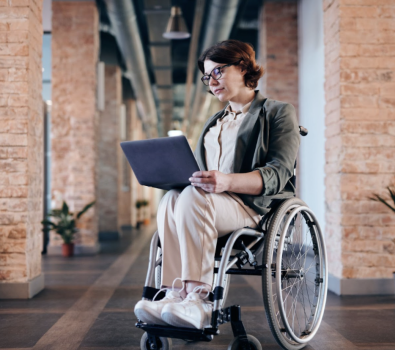College students older than 18 years old should be aware that their medical data is protected by HIPAA. Medical providers, insurance companies, and other healthcare organizations can’t disclose students’ data to third parties, including their parents and other family members, without their consent or knowledge.
But what is a HIPAA Authorization Form? How does it work? And what does it mean if you sign or don’t sign one? We’re here to answer all those questions. Read on to understand all the details that protect you as a student. And how HIPAA Authorization Forms work. What is the HIPAA Privacy Rule?
The Standards for Privacy of Individually Identifiable Health Information (HIPAA Privacy Rule) are the standards for the use and disclosure of personal health information (PHI). These standards were designed to protect the privacy of U.S. patients.
The HIPAA Privacy Rule allows health providers to use PHI for administrative and billing purposes. Simultaneously, it obliges doctors to inform patients about how their health information is used and whether it’s shared with other entities.
Why should students consider signing HIPAA Release Form?
You are a student now and you’re just starting your adult life. No matter how far you live from your parents now, the people that raised you still play an important role in your life. They provide you with care and support, and the chances are they still pay for your health insurance and might even support you financially.
Naturally, your mother and father worry about you, your health, and your wellbeing. And they want to be informed about all the critical health issues and emergencies that occur while you’re in college.
By signing HIPAA Authorization Form, you allow the medical provider to contact your parents and inform them about your health status. Whether you get to the hospital because of a traumatic event or car accident, your parents will be able to access your medical records and discuss your treatment plan with your doctors. When you sign the form, you ensure that your parents will be there for you when you need them the most.
What will happen if you don’t sign a HIPAA Authorization Form?
If you don’t sign the HIPAA authorization form, healthcare providers will have limited rights to share your personal health information with third parties. It means that if you get to the hospital because of a traumatic incident, your parents may or may not be notified. It always depends on the severity of the case, the state, the medical institution, and other factors. It may surprise you, but some students spend a few days in intensive care while their parents have no clue what is happening with their children.
Set the privacy rule that fits you
Many students hesitate to sign a HIPAA form because they don’t want their parents to see their sexual and mental health records. But the truth is that you can keep your privacy – you don’t have to share everything about your health. You can specify what data your parents can and cannot access.
In other words, if you sign the HIPAA form, you will allow your parents to access information related to emergency hospitalizations only. For instance, if you broke an arm while riding a bike, doctors and your parents will be able to discuss your bone fracture repair surgery. They will not be allowed to touch other health-related topics like sexually transmitted infections that you had in the past.
What is FERPA?
The Federal Educational Rights and Privacy Act (FERPA) is a law designed to protect students’ privacy and their educational records. According to this law, parents can’t access students’ records without their authorized permission. They can’t get information about the grades. And they can’t access health records maintained by college medical centers. Thus, if you want to permit your parents to access your personal health information, you should sign both HIPAA and FERPA waivers.
Just remember that you have the exclusive right to inspect and review your educational records as a college student. You don’t have to provide your mom and dad with access to all your records. You can open the access to emergency health information only.
If you don’t want your parents to know what grade you have gotten for your term
paper and who helps you to do statistics homework, that’s totally fine. You’re an adult now – you are the only person responsible for your academic achievements. So you can keep your educational information private to deal with the pressure your parents put on you to be an excellent student.
What should I do if I’m not close with my parents?
If you’re not close with your parents/guardians for whatever reason, don’t worry your parents are not the only close people you can mention in your HIPAA form:
- If you are already married, you can authorize your spouse to discuss your health status with your doctor.
- You can give a special permit to any other family member, for example, an older sister or uncle.
- You can even let your best friend access your health records.
- Bottom line is you can give legal permission to any person you are close with. It’s up to you.
In conclusion
Your parents and your loved ones do care about you and your health. So you should make it possible for them to access your medical records in case of emergency. You should consider signing the HIPAA form and FERPA waiver to make it legally possible.
Author:
Nicole Garrison is a content strategist, writer, and contributor at an essay writing service. She is a dedicated and experienced author who pays particular attention to quality research.



